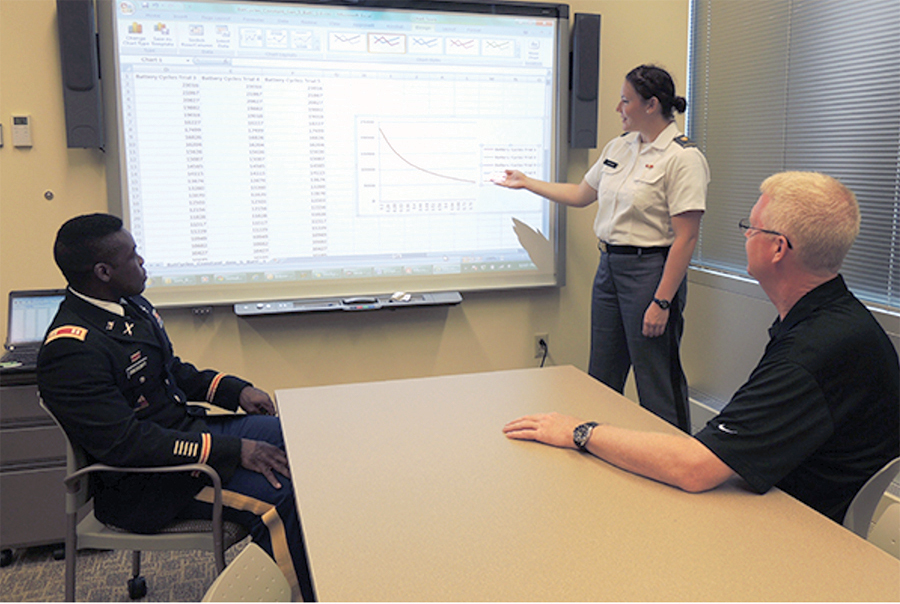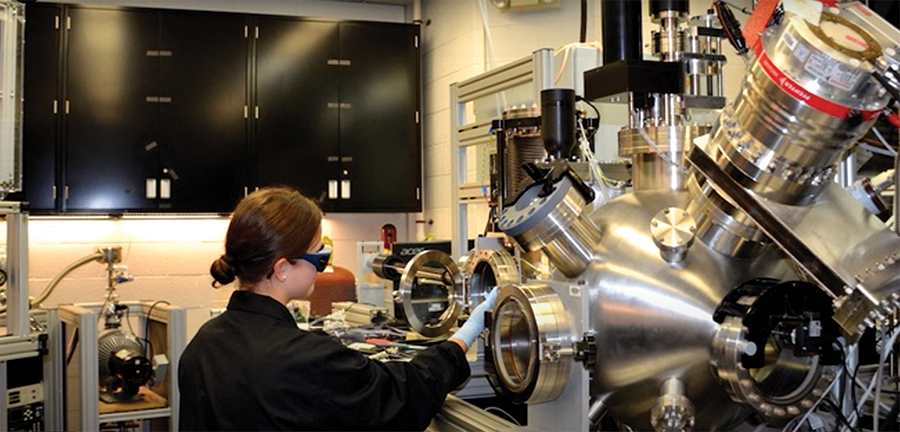The Purdue Military Research Institute (PMRI) began in Fall 2014 to provide no-cost, in-resident, graduate education for active-duty U.S. military officers from the Army, Navy, Marine Corps, Air Force and Space Force by offering access to some 1,900 faculty who are conducting world-class research in numerous areas of significant impact and interest to the Department of Defense. With existing competitively awarded Purdue research combined with the tactical and operational understanding of military officers, PMRI strengthens security and defense research output while performing a service to the nation.
In 2021, PMRI recruited its largest-yet cohort of 24 new student officers. Totaling 127 participating officers to date, PMRI is believed to be the largest graduate education program for military officers outside of the Air Force Institute of Technology or the Naval Postgraduate School. While PMRI is not limited to engineering degrees, over 70% of the PMRI officers are selected to pursue engineering graduate degrees.
J. Eric Dietz, director of Purdue's Homeland Security Institute and director of PMRI, was an Army captain in 1994 when he earned a PhD in Chemical Engineering at Purdue. He said PMRI has proven successful in leveraging military officers with some of its most promising research led by faculty members at Purdue. "To date, we have recruited over 100 military officers from each military service that has afforded us the opportunity to enhance the important research that Purdue is doing for the defense and security of our nation," Dietz said. "Our approach attempts to strengthen the military not just by writing a report or research paper but also by reinforcing the transition of the project, moving the military officer back into service to implement the research learned at Purdue."
Brigadier General Leon Robert (U.S. Army Retired) said PMRI provides a value in that military members are immediately connected to Department of Defense research projects. "They take that knowledge, along with their academic degree, back to their respective services, using their education to protect service members throughout the world."
U.S. Navy Lieutenant Commander Toy Andres, a 2021 graduate of PMRI, said that his fellow officers in the Navy were surprised about the existence of the program. "I really look forward to using some of the skills I've learned in finding new interdisciplinary ways to look at a problem instead of looking at a small silo."
U.S. Air Force Captain Glenn R. Peterson, currently a student at PMRI in the College of Engineering, said growing up in the Midwest, Purdue was always on his radar. "Being able to go to Purdue and put that on my resume is spectacular to me as I work toward a PhD in Materials Science. Years ago I wouldn't have been able to tell you that this opportunity would be available to me."

West Point cadet Abby Vorhaus, commissioned in the Armor Corps, presents her summer research in energy security.
Photo provided
Purdue President Mitch Daniels, in speaking about the importance of PMRI, said that technology has always been central to military supremacy but never so much as today "as we try to expose as many of these advanced-degree candidates to the technological disciplines that will protect us all looking ahead."
This generation of graduates is leading urgently needed technology programs in areas such as hypersonic systems, cybersecurity, pandemic response, aircraft systems, high-performance materials and energetic compounds. Many of the Institute's graduates serve by teaching at military academies and readying the latest generation of military leaders. PMRI has also sponsored over 100 cadets and midshipmen from military academies to introduce research to military undergraduates. Purdue has sponsored or provided faculty exchange to further enhance education and readiness of military technology.

